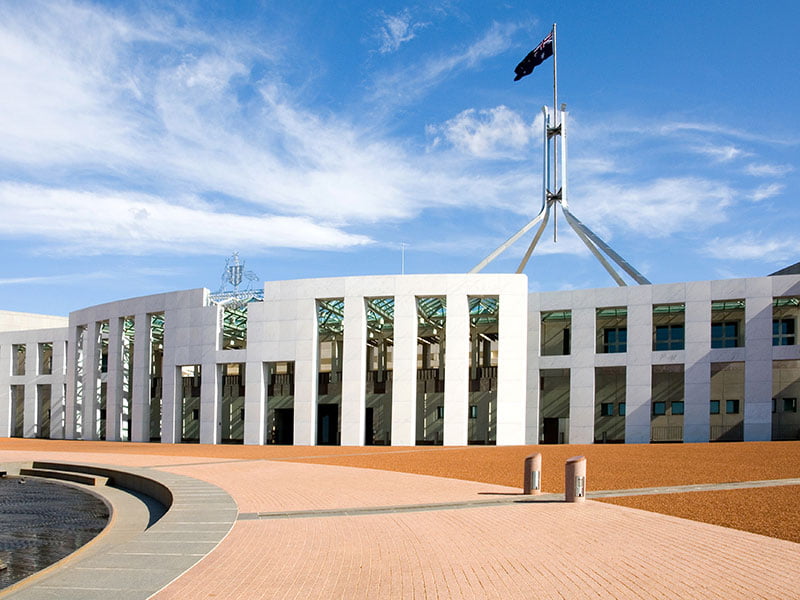A significant restructuring of the popular export market development grant program has passed Parliament, while a number of major tech-related pieces of legislation will remain there over summer.
Changes to the export market development grant scheme (EMDG), transforming the program into a more traditional entitlement-based grants instead of its current form where it is paid after the fact, were passed quickly by the Senate unamended with bipartisan support last week, on one of the final sitting days of the year.
The legislation also tightened eligibility for the scheme, reducing the annual turnover threshold from $50 million to $20 million, and introduced three tiers of support covering eligible export promotion expenses for Australian businesses.
The changes come following a significant funding increase for the EMDG, with more than $110 million provided to the scheme in recent years.

While these changes sailed through Parliament, a number of significant tech-related policies, including those relating to critical infrastructure cybersecurity, new hacking powers for police and the news media bargaining code for tech giants will not be debated or passed until at least February next year after they weren’t passed in the last sitting fortnight of 2020.
Home Affairs minister Peter Dutton introduced legislation introducing cybersecurity obligations for critical infrastructure operators and the power for the government to take control of a company in the wake of a cyberattack last week.
The critical infrastructure bill marks a “significant step in the protection of the critical infrastructure and essential services which all Australians rely upon”.
The legislation expands the definition of critical infrastructure to cover a range of companies operating in communications, data and the cloud, research and health and higher education, and imposes new cybersecurity obligations on these businesses.
It also hands “last resort” powers to government to force operators of critical infrastructure to do or not do something to prevent a cyberattack or react to it, and to actually take over a company to fight a cyber-threat.
“Australia is facing increasing cybersecurity threats to essential services, businesses and all levels of government. In the past two years we have seen cyber-attacks on federal parliamentary networks, logistics, the medical sector and universities,” Mr Dutton said.
“This bill signifies an enhanced effort to ensure the ongoing security and resilience of critical infrastructure and the essential services they provide for all Australians.”
The week earlier, Mr Dutton introduced legislation handing new hacking powers to the Australian Federal Police and Australian Criminal Intelligence Commission. The bill introduces new warrants allowing authorities to “disrupt” the data of suspected criminals, access their devices or networks, and take control of their online accounts.
The legislation has been referred to the Parliamentary Joint Committee on Intelligence and Security (PJCIS) for inquiry, with submissions due by 12 February next year.
In the last sitting fortnight of 2020, the federal government also introduced to Parliament the long-awaited news media bargaining code for Facebook and Google.
The code, which will force the tech giants to go into forced “final offer” arbitration to determine a revenue sharing deal with media companies if they can’t reach a deal within three months, has been referred to the Senate Economics Legislation Committee, which has been given a deadline of 12 February.
The PJCIS is still yet to hand down its report on the controversial Assistance and Access Act encryption powers, or on legislation underpinning the government’s plan to enter into a data-sharing deal with the United States.
There are a number of other open inquiries into tech-related pieces of policy, including a major review of the Privacy Act.
The Digital Transformation Agency is also consulting on legislation that would expand the digital identity program to the private sector and state governments, with submissions due by the end of the week.
The DTA is also consulting on a “refresh” to the Digital Transformation Strategy and is currently accepting submissions.
Do you know more? Contact James Riley via Email.

